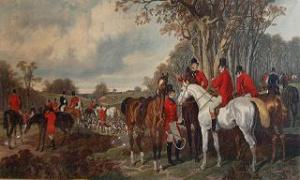Archive for September, 2009
Guidance vs Coaching
Posted by Saiyada Smith in Decision making, Models, Skills and methods, Understanding clients on 23 September 2009
Over the last couple of weeks I have found myself in deep debate with my careers colleagues about the differences and similarities between Coaching and Guidance. I myself struggle to differentiate the two practices, so upon much probing a colleague clarified Coaching as “practice focused on goal setting and achievement where as Guidance is all about the past”
This got me thinking, both the Egan 3 Stage Model and the popular Ali & Graham Model contain a clearly defined action planning stage and there isa focus on goal setting. Yes, there is an exploration stage where practitioners are encouraged to help clients reflect on blocks and obstacles to their decision making, identify patterns of behaviour from the past that may impact future choice and hell we even work as catalysts in helping clients define their own way forward. So erm, what was the difference between Guidance and Coaching?
Read the rest of this entry »
A new blood sport
Posted by David Winter in Effectiveness on 22 September 2009
Hunting of foxes with dogs is (for the moment) banned in the UK. However, hunting of careers advisers with questionable research is still apparently legal. There have been a number of instances over the last few months of careers-adviser bashing by various bodies.
- ‘Throughout our work we have barely heard a good word about the careers work of the current Connexions service.’ – from the Unleashing Aspirations report by the Panel on Fair Access to the Professions (Summary and Recommendations, section 5.3, p. 34). [See Let the right one in for more comment on this report.]
- ‘The girls told us that, in their view, the quality of careers advice from Connexions is poor.’ – from the Shaping a Fairer Future report by the Women and Work Commission (p. 13).
- ‘Our research found that one in five people has needed to retrain or reskill as a result of unsatisfactory careers advice.’ – quote from Chris Jones, Director of City & Guilds in The Times, 9 September 2009.
Because these are not published in peer-reviewed journals they don’t have to explain exactly how they conducted their research and obtained their ‘evidence’. It’s very easy to produce dodgy statistics to support an argument which pushes your own predetermined agenda.
Read the rest of this entry »
Time-wasters’ diary
Posted by David Winter in Career satisfaction on 18 September 2009
Recent longitudinal research has established a link between students’ behaviour at university and their chances of job burnout or dissatisfaction.
In their article ‘Achievement strategies during university studies predict early career burnout and engagement’ (Journal of Vocational Behavior 75 2009), Katariina Salmela-Aro and her colleagues conducted investigations on over 200 Finnish students whilst at university and then 10, 14 and 17 years later.
The study showed that those students who more often engaged in task avoidance whilst at university were more likely to report burnout or disengagement with their careers in later life. Whilst, higher levels of optimism were linked to more engagement.
Read the rest of this entry »
Modes of growth
Posted by David Winter in Cycles, Development on 15 September 2009
Most of us are probably familiar with the Experiential Learning Theory of David Kolb. However, did you know that he had dabbled in career theory?
In the book Career Frontiers: New Conceptions of Working Lives (2000, OUP) he contributes the chapter snappily entitled Performance, learning and development as modes of growth and adaptation throughout our lives and careers along with Richard Boyatzis.
Read the rest of this entry »
Learned helplessness and the recession
Posted by David Winter in Action, Decision making, Employability, Inheritance, Resources, Socio-economic factors, Understanding clients on 11 September 2009
In 1967 Martin Seligman conducted some slightly disturbing experiments on dogs. The dogs were exposed to electric shocks that they could not escape because of restraints. Eventually they would give up trying to do anything about their suffering. This lack of response continued even when the restraints were removed and it was possible for them to avoid the pain. The dogs had come to believe that they could do nothing about the shocks, so they didn’t try.
Based on this, and further experiments on animals and humans, Seligman formulated the theory of learned helplessness. In essence, it says that when someone is exposed to an experience in which they feel they have no control or ability to change things, this can lead to an assumption of helplessness which persists even if it subsequently becomes possible to effect a transformation.
Throughout the recession there has been talk about how to help the ‘lost generation‘. However, if learned helplessness is real, then it will require more than just providing opportunities. The recession may have affected the perceptions and attitudes of a generation of job-seekers.
Read the rest of this entry »





Recent comments